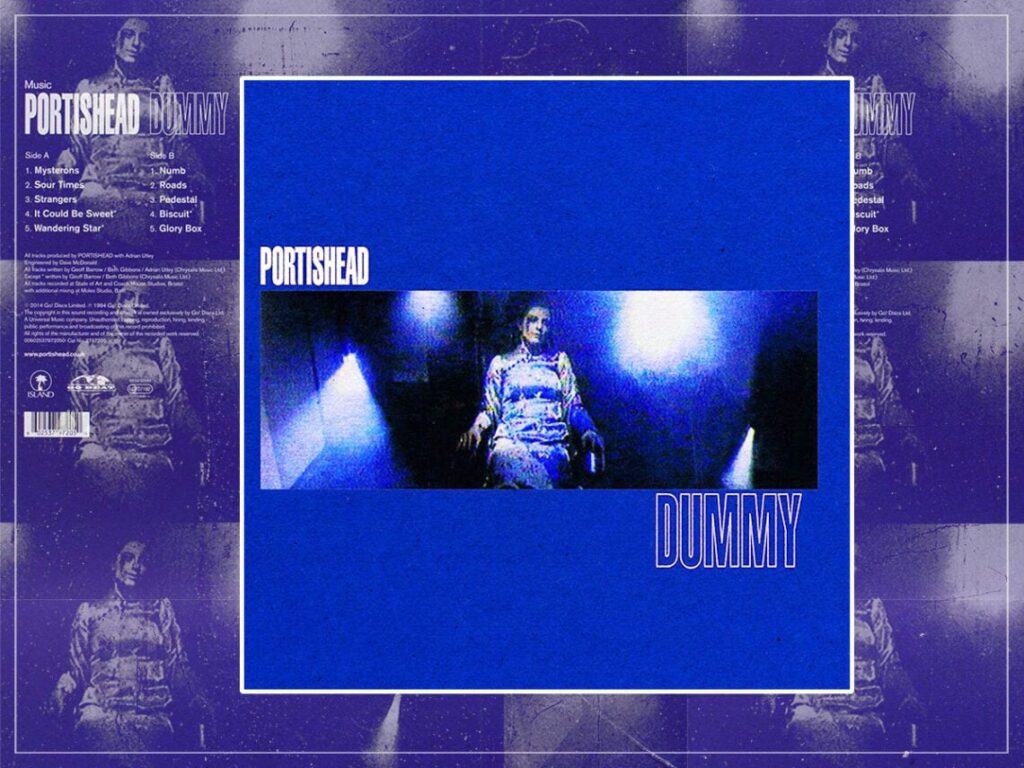The obscure and surprising samples that define Portishead’s ‘Dummy’
 Posted On
Posted On
(Credits: Far Out / Go! Discs LTD)
The trip-hop explosion that took place in the 1990s might not have eclipsed movements like grunge, Britpop or hip-hop, but it paved the way for a new sound, effortlessly fusing techniques used by musicians in stereotypically opposing genres. Borrowing methods of music-making from genres as wide-ranging as hip-hop, jazz, alternative rock, musique concrete, and soundtracks, trip-hop bands created songs from a melting pot of influences, with one of the most prominent acts being Portishead.
One of the main techniques often used by trip-hop artists was sampling, as demonstrated by one of the quintessential records from the genre, Endtroducing… by DJ Shadow, made almost entirely from lots of samples. While Portishead featured the stunning voice of Beth Gibbons and lots of the band’s own instruments, most tracks featured samples, some of which took centre stage as Gibbons’ voice weaved over the top, soulful and rich.
Their debut album Dummy, released in 1994, won the band the Mercury Music Prize, and 30 years later, it holds up as an immersive and endlessly creative piece of work, evoking retro spy soundtracks, lustful soundscapes, and themes of mystery, despair, romance, and longing. Geoff Barrow claimed (via the Guardian) that he “got really into hip-hop and electro when I was about 14” and that love evidently helped him to bring techniques like sampling to Portishead.
While they made many samples themselves, the band also used many obscure or unexpected samples of pre-existing tracks, which they manipulated and transformed for use in Dummy. So, let’s start at the beginning with ‘Mysterons’, which prominently features a theremin to give the song an eerie quality. Talking to KEXP, Barrow revealed that the song was inspired by the theme song to Captain Scarlet and the Mysterons: “Captain Scarlet’s main enemy was the Mysterons, and somebody had a Barry Gray 12″. It was the theme from Thunderbirds, and on the other side, it was the theme from Mysterons. It had a theremin-like instrument.”
While the song doesn’t directly sample it, ‘Mysterons’ was heavily inspired by the theme, helping to kickstart the album’s retro and mystery-laden themes. However, the next song, ‘Sour Times’, features two direct samples, most significantly, Lalo Schifrin’s ‘Danube Incident’, a soundtrack piece that helped to continue this sonic essence of intrigue and cinematics. This forms the main meat of the song, but the beat in the background is also a sample: ‘Spin It Jig’ by Smokey Brooks.
Next is ‘Strangers’, which begins with the same opening notes as The Weather Report’s ‘Elegant People’, while the saxophone from Eddie Harris’ ‘Wait Please’ can be heard in the song. There are no listed samples in ‘It Could Be Sweet’, but in the next track, ‘Wandering Star’, the band use War’s ‘Magic Mountain’, with Barrow telling KEXP that the song “kind of needed a solo, so I just kind of scratched the start of ‘Magic Mountain’.”
The gorgeous track ‘Numb’ only has a minor sample in it, with Ray Charles saying “Yeah” in ‘I’ve Got A Woman’ – although this hasn’t been officially confirmed by any liner notes or the band. Still, if you listen to Charles’ singing 59 seconds into his track and compare it with the pitched-down voice at 2:07 in ‘Numb’, it seems that the 1954 track is the origin of the sample.
It appears that there are no samples in the heavenly ‘Roads’, although Barrow and Adrien Utley revealed in that same interview that the track is actually inspired by a piece from John Carpenter’s action movie Assault on Precinct 13. There are no samples listed for ‘Pedestal’ either, which leads us to ‘Biscuit’, an underrated gem on the album, which features Johnnie Ray’s ‘I’ll Never Fall In Love Again’, pitched down into an ominous and bleak tone.
The album ends with the sensual ‘Glory Box’, which is centred around the song ‘Ike’s Rap II’ by Isaac Hayes. The track was used in Tricky’s 1995 hit ‘Hell Is Round the Corner’, another definitive trip-hop song. Both tracks do something completely different, however, with ‘Glory Box’ swelling with Gibbons’ gorgeous vocals as she declares, “Give me a reason to love you/ Give me a reason to be a woman/ I just wanna be a woman.” It is one of Portishead’s greatest tracks, and Hayes’ 1971 song fits perfectly into Portishead’s sonic world – part romantic, part painful.
Dummy is a seminal album that remains a favourite for many. The band relied less on samples as their career progressed, instead making their own, but for Dummy, they carefully selected some interesting tracks to masterfully weave into their music, and the result was a beautiful and unforgettable record.
Related Topics


